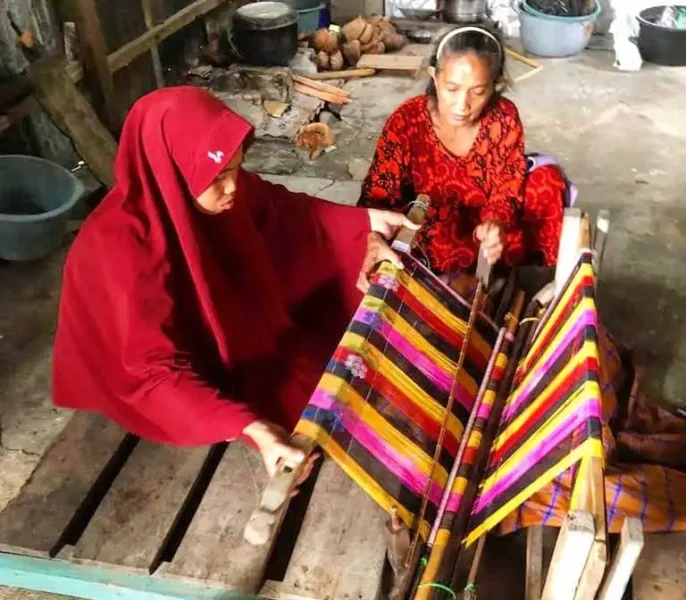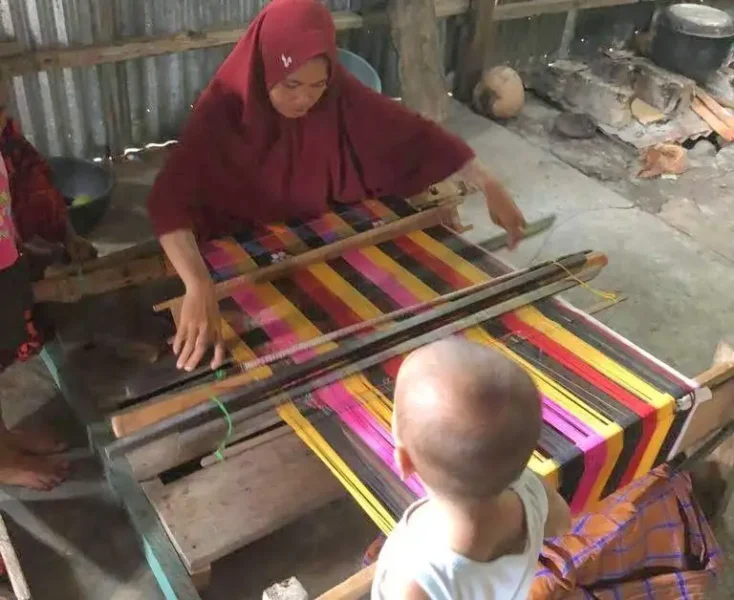Hidden away in the quiet village of Towale, just a short walk from Six Degrees Off Grid, is a tradition that predates electricity, roads, and even the modern map. Here, a handful of women still sit at backstrap looms, weaving intricate patterns into fabric — the age-old craft of sarung Donggala, known locally as bomba.

This is not performance for tourists. It’s not a souvenir stall or a commercial production line. The women who weave in Towale do so from memory, from heritage, and from a deep sense of rhythm that connects them to their ancestors. Many of them learned by watching their mothers and grandmothers. Some still dye their threads using natural methods passed down through generations.

The bomba designs — geometric, complex, and rich with meaning — are part of the cultural identity of the Kaili people, whose traditions still shape life in this part of Central Sulawesi. Each motif tells a story: of protection, of fertility, of connection to nature or the cosmos. These sarungs are still used today in weddings and rituals, passed down in families and worn with pride.

Towale is one of the last villages where this craft continues in its original setting. There is no formal workshop, no schedule. But for those staying at Six Degrees Off Grid, a quiet visit can be arranged — a chance to watch the process, meet the weavers, and better understand the value of something handmade, time-consuming, and meaningful.
Supporting these artisans, even by listening and learning, helps keep the tradition alive. For those interested, it’s sometimes possible to purchase a piece — though they are not made quickly, and the supply depends entirely on the weaver’s own rhythm.
In a fast-moving world, this is something different. A quiet thread connecting Towale’s past to its present — and a chance for visitors to witness a cultural practice that is both delicate and resilient.



